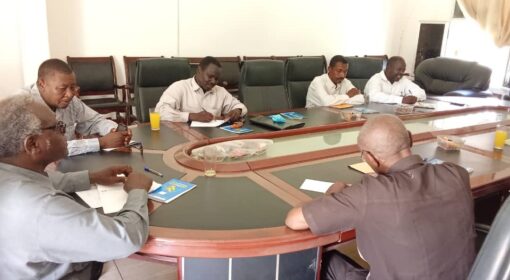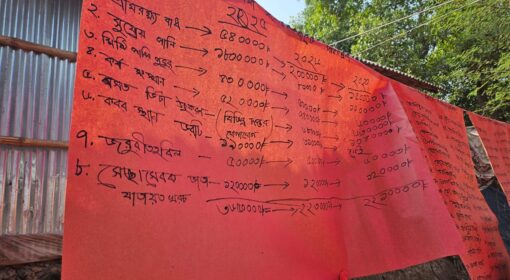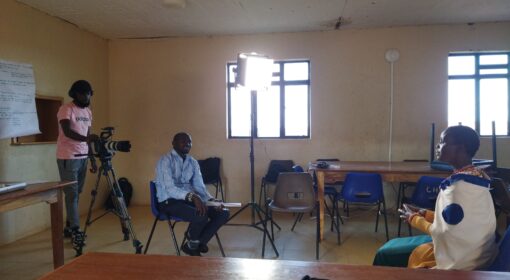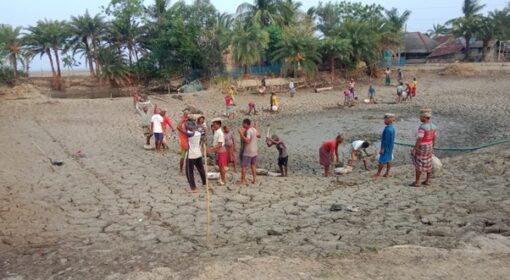By Izzeldin Hashim Mohammed (SOS Sahel), Rwnag Mohammed, Femke van Woesik
This blog is part of a dossier on locally-led adaptation, featuring insights and lessons from the Reversing the Flow (RtF) program. RtF empowers communities in Bangladesh, Burkina Faso, Ethiopia, Kenya, and Sudan to build climate resilience through direct funding and a community-driven, landscape approach.
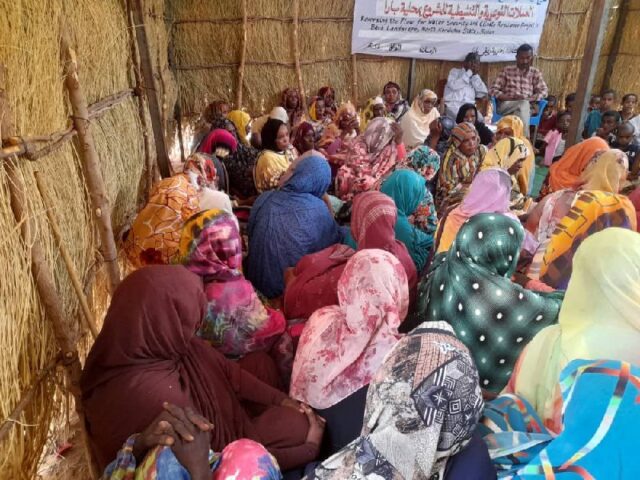
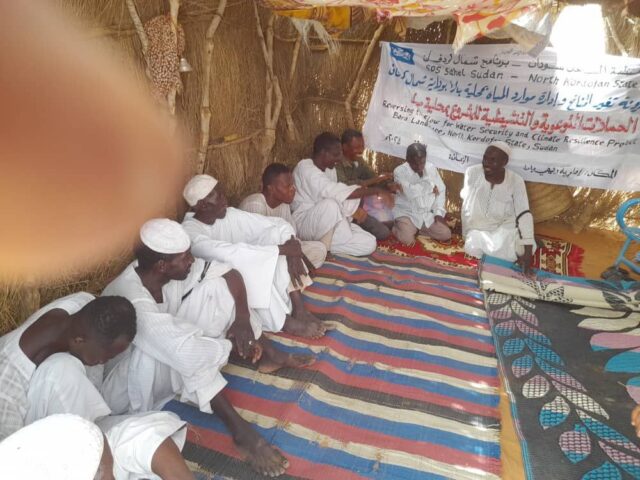
In the midst of ongoing conflict in Sudan, where political instability and violence have significantly disrupted daily life, the Reversing the Flow (RtF) program by SOS Sahel serves as a crucial initiative for promoting water security and climate resilience in the Bara landscape of North Kordofan. The conflict has exacerbated challenges related to governance, access to resources, and infrastructure, making community-led solutions more critical than ever. Launched in July 2023, the program aims to empower local communities through innovative water management and climate adaptation strategies, ensuring resilience despite substantial obstacles from the surrounding conflict. By focusing on local knowledge and community-driven initiatives, the RtF program remains committed to its mission despite the destabilizing effects of the conflict.
Adapting to Adversity: Navigating Conflict to Achieve Progress
This RtF program has been tested by significant disruptions due to the ongoing conflict, impacting the ability to engage directly with communities. This required adaptability and refined strategies to navigate these obstacles and maintain focus on the community’s long-term resilience.
The program’s resilience stems from its ability to shift strategies dynamically, such as conducting community mobilization sessions in secure, indoor locations “such as community houses” instead of open areas. This adaptive approach ensures that critical information and support still reach local communities, protecting their well-being despite escalating violence.
Moreover, the conflict has resulted in government-imposed restrictions on organizational activities in the Bara landscape, creating additional hurdles. SOS Sahel, with the support of the established steering committee, has been able to advocate effectively for the program, keeping it on course even in a restrictive environment.
The Steering Committee plays an essential role by acting as a mediator between the program and local authorities, helping to navigate complex bureaucratic barriers imposed due to the conflict. This body, composed of local leaders, government officials, and technical experts, provides crucial oversight and maintains open channels of communication with stakeholders at both the local and state levels, ensuring that the project’s goals align with the immediate needs of the communities. In this context, the Steering Committee is vital for securing government support, facilitating coordination with humanitarian actors, and ensuring that technical standards are upheld even as the conflict continues.
Community Empowerment in Action
Despite the adverse conditions, the impact of the RtF project is already evident. In 30 communities across the Bara landscape, local groups have embraced the RtF approach, forming grassroots organizations to take ownership of water security and climate adaptation efforts. These groups are preparing to manage and implement the funding provided by the project, a significant step towards fostering self-sufficiency and resilience in the face of growing climate challenges.
The empowerment of these communities is central to the success of the RtF initiative. By enabling local actors to take control of resources and decision-making, the project not only strengthens their capacity to address immediate water needs but also builds a foundation for long-term climate resilience. This empowerment model is critical in conflict settings, where external support can be limited, and local ownership becomes key to sustaining progress.
Learn more about community-led climate adaptation in Sudan here.
